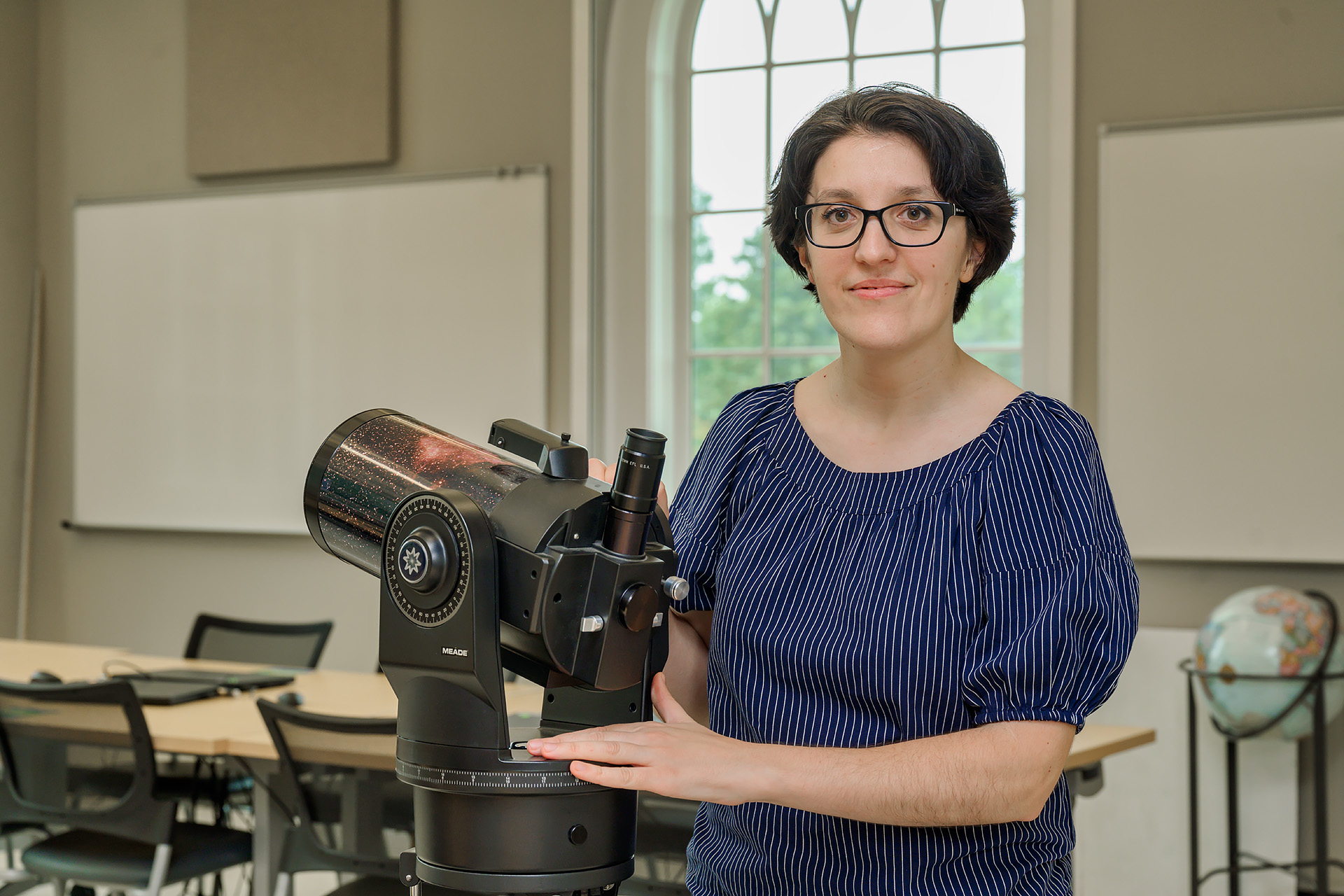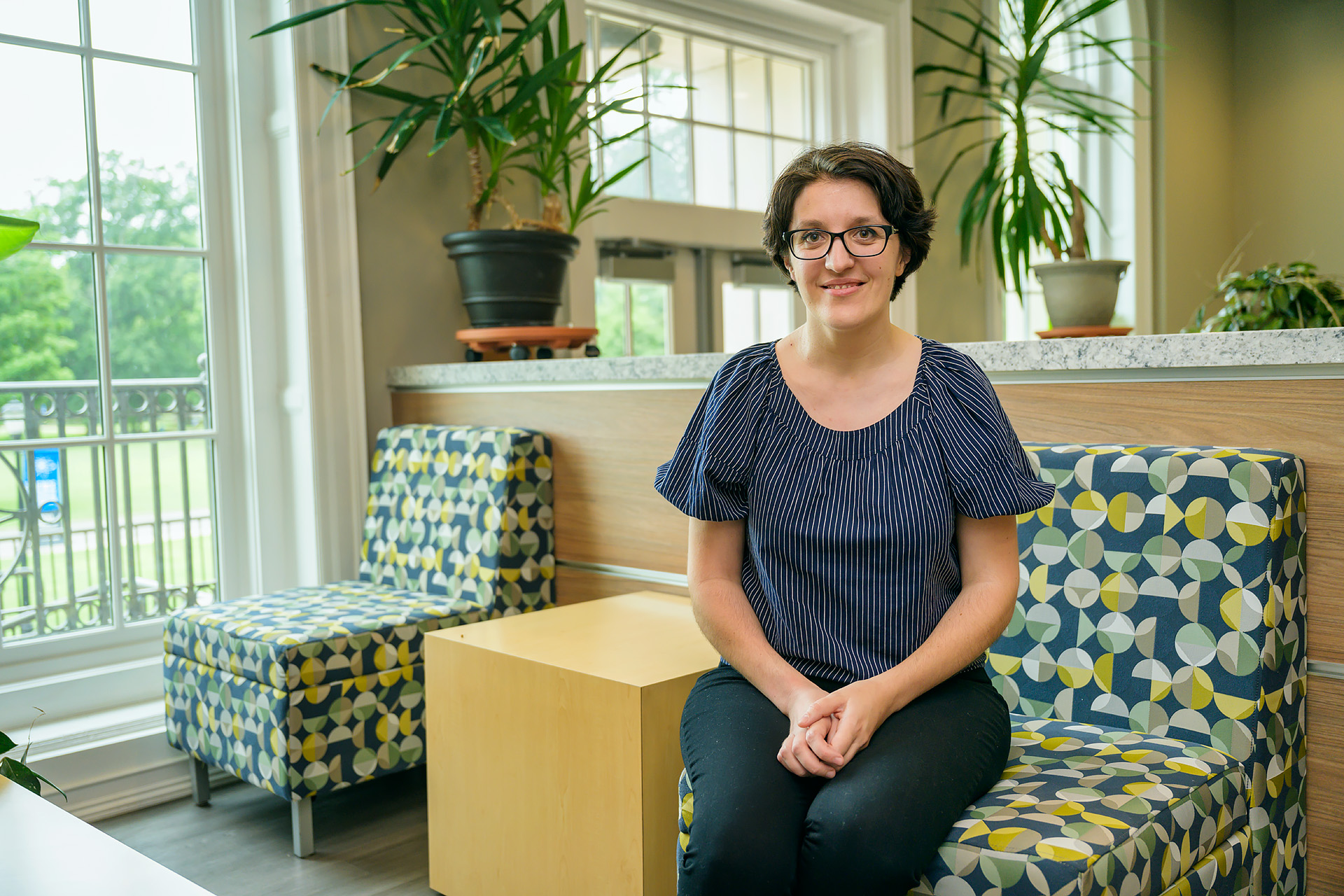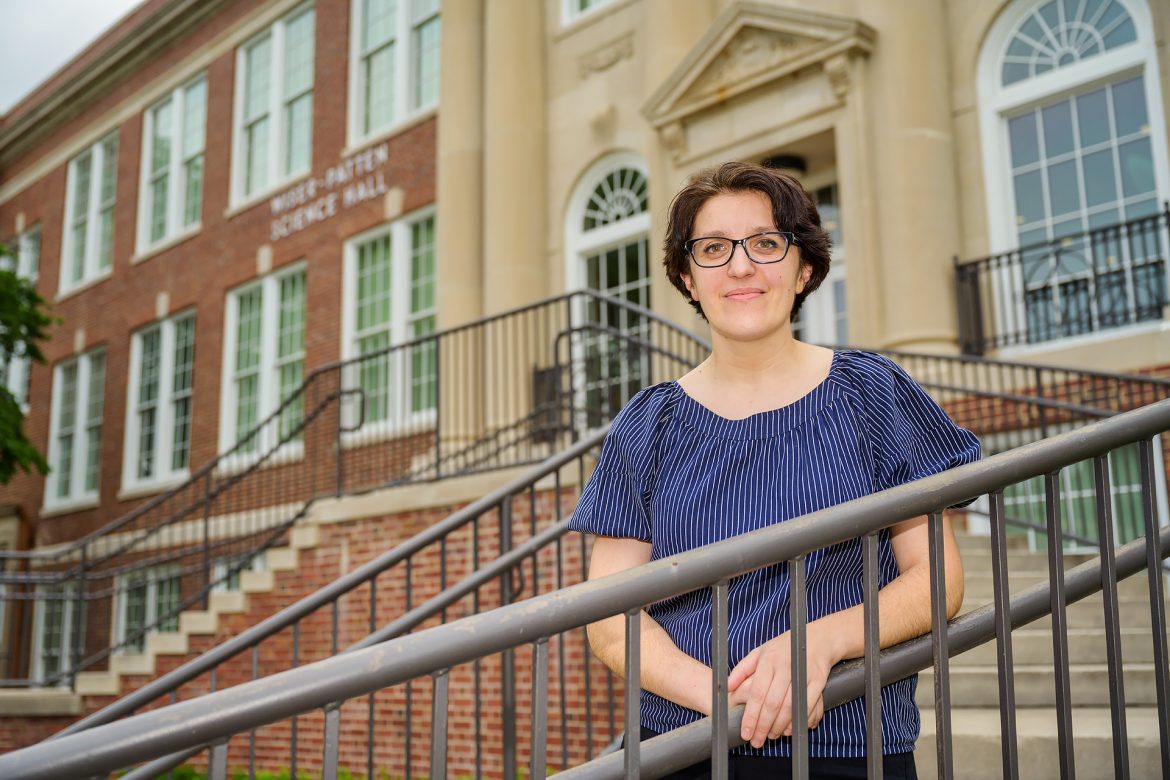Encouraging comments from MTSU students in Hanna Terletska’s recent general education astronomy laboratory classes made her realize she’s definitely in the right profession.
The assistant professor in the Department of Physics and Astronomy received rave reviews for her teaching style and work ethic — and ensuring about 120 mostly non-science majors each semester are on a successful path in a potentially tough STEM (science, technology, engineering and math) subject they must pass in order to graduate.
In her fourth year at MTSU, Terleska already has a number of honors to her credit and is considered a rising star in her field. In the spring, she was nominated for the University General Education Teaching Award for her edifying and enriching efforts in her astronomy lab classes.
“This is a very competitive award, especially considering the number of talented and dedicated educators we have at the university,” Terletska said of the potential recognition. The overall winner will be announced at the annual Fall Faculty Meeting in August. “I am honored and grateful for being nominated.”
It was confirmation she more than makes the grade with her students, but is equally adept with research.
Terletska brought MTSU $630,000 through two National Science Foundation-funded projects, including the nearly $500,000 Early Career Development (CAREER) NSF grant she received in 2020 — a highly coveted honor primarily earmarked for junior faculty at schools like Harvard.

Hanna Terletska, Physics & Astronomy faculty, in and around Wiser-Patten Science Hall and Strobel Lobby.
The astronomy lab is among the few science classes students take to fulfill science requirements for their college degree.
“It isn’t uncommon for students to be a little anxious about taking the astronomy lab class, don’t see the relevance of the class to their education or future profession and even have the fear of the math or science activities that might require skills that push them beyond their confidence zone,” Terletska said.
“One of the biggest challenges for us as educators is to break through such barriers of students who are taking the class by finding the relevance and enjoyment in the class, igniting students’ interest and curiosity,” added Terletska, who tweaked her teaching method while adapting to remote learning because of COVID-19 protocols implemented as the pandemic spread across the nation.
“Astronomy labs generally don’t receive a lot of positive feedback,” Physics and Astronomy Chair Ron Henderson said. “Since Hanna’s been teaching, there have been unsolicited comments many, many times. From a chair’s perspective, students are enjoying that class more than normal.”
Terletska found teaching the general education course “challenging” after arriving at MTSU in 2017.
“Now, I enjoy every class meeting,” she said. “I just love doing it. It is interesting and fun. The happiest part is to read every week that students enjoyed the lab, learned something interesting they did not know and that they are looking forward to the next class. It is truly rewarding that my work and dedication has an impact in students’ attitudes to the class and science overall.”
On the first day of class every semester, Terletska tells her students that her goal for the class “is for them to love astronomy for the rest of their lives.”
Students’ comments range from “this lab was super fun and (I) can’t wait to learn more about astronomy next week!” to “I appreciate this class because it has opened up a lot of curiosity about the things we have learned over time.”

Hanna Terletska, Physics & Astronomy faculty, in and around Wiser-Patten Science Hall and Strobel Lobby. (Photo: Andy Heidt)
Taking pride in educating students
For Terletska, teaching and research go together.
“In addition to being a hard-core researcher, I really love teaching,” she said. “There’s a common stereotype that research-active faculty are not dedicated in teaching. I want to assure you that is not the case here. I like interacting with students, seeing them grow by learning.
“I like to share with them the beauty of science, understanding how things work through the eyes of science and how science actually plays a very important role in our everyday lives and quality of life.”
Terletska said teachers and education “played a life-changing role in my life. I was a first-generation college student, and only because of the dedicated teachers I had in my high school and then in college, I became a scientist myself and now an MTSU professor.
“Because of it, I also came to the United States from Ukraine to pursue my educational and research dreams and goals. Science was always an interesting topic for me and I was good at it, but also out of many interesting sciences, physics was the most interesting and fun, and I am sure it is because of the full dedication of teachers and professors I was fortunate to have.”
Following several semesters of remote learning, Terletska and her Physics and Astronomy colleagues welcome the return of primarily in-person classes this fall.
“I missed interacting with students a lot,” she said. “Also, we can resume some of the class activities — such as the night sky observations at the MTSU observatory — that are a valuable experience for students to have.”
To view Terletska’s web page, go here.
Randy Weiler (Randy.Weiler@mtsu.edu)


COMMENTS ARE OFF THIS POST